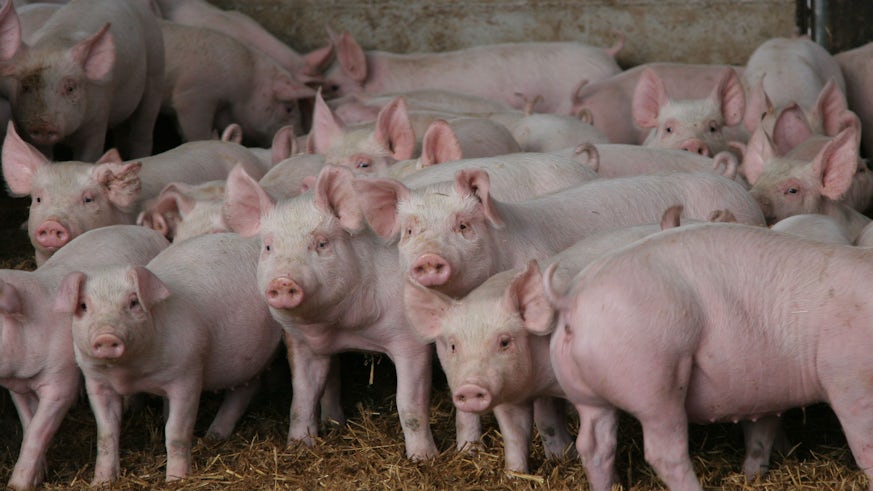Pig immunology comes of age
18 May 2018

A team of researchers, led by Cardiff University, has developed methodology for closely studying pig T cell responses to influenza for the first time, giving them a new way of developing vaccines that can be effective against all strains of flu in pigs, birds and humans.
Professor Andrew Sewell, lead author of the study said: “Pigs provide a very good model system for influenza virus infection. They can be infected with both human and bird flu in addition to swine flu and are known to act as important ‘mixing vessels’ for the creation of pandemic flu strains. The new methodology and tools we’ve developed in Cardiff will allow researchers at Pirbright, the Bristol Veterinary School and elsewhere to closely study pig T cell responses to influenza for the first time. The ultimate goal will be to create a vaccine that can be effective against all strains of flu.”
The research, which also involved researchers from The Pirbright Institute, the University of Bristol, and University of Oxford, reveals how immune cells in pigs, called killer T cells, are recruited in large numbers in the lung after infection with influenza or aerosol vaccination.
It will now be possible to track the number and location of T cells in pig blood and tissues during infection, which can help determine the ability of vaccines to induce T cell immunity. Researchers are now able to predict which flu proteins will be recognised by pig T cells, therefore providing valuable information for vaccine improvement or development.
The breakthrough research, described in PLOS Pathogens, used a unique line of Babraham inbred pigs to develop models and tools for examining T cell responses against flu infection or vaccination. The study brings methods for studying these vital immune cells up to the same high standards that are available for humans and mice.
T cells can provide protection against multiple strains of flu, but current vaccines are unable to activate them effectively. The new study showed that aerosol delivery of a new candidate influenza vaccine was highly efficient in triggering T cell responses in the lung, which are essential for protection against respiratory diseases.
Dr Elma Tchilian, head of the Mucosal Immunology group at Pirbright said: “This study will equip us to track T cells during infection and understand how best to vaccinate animals and humans to achieve powerful protective immune responses. We’ve filled a gap which previously hindered swine immunology research, and can now be used in the study of many diseases.”

